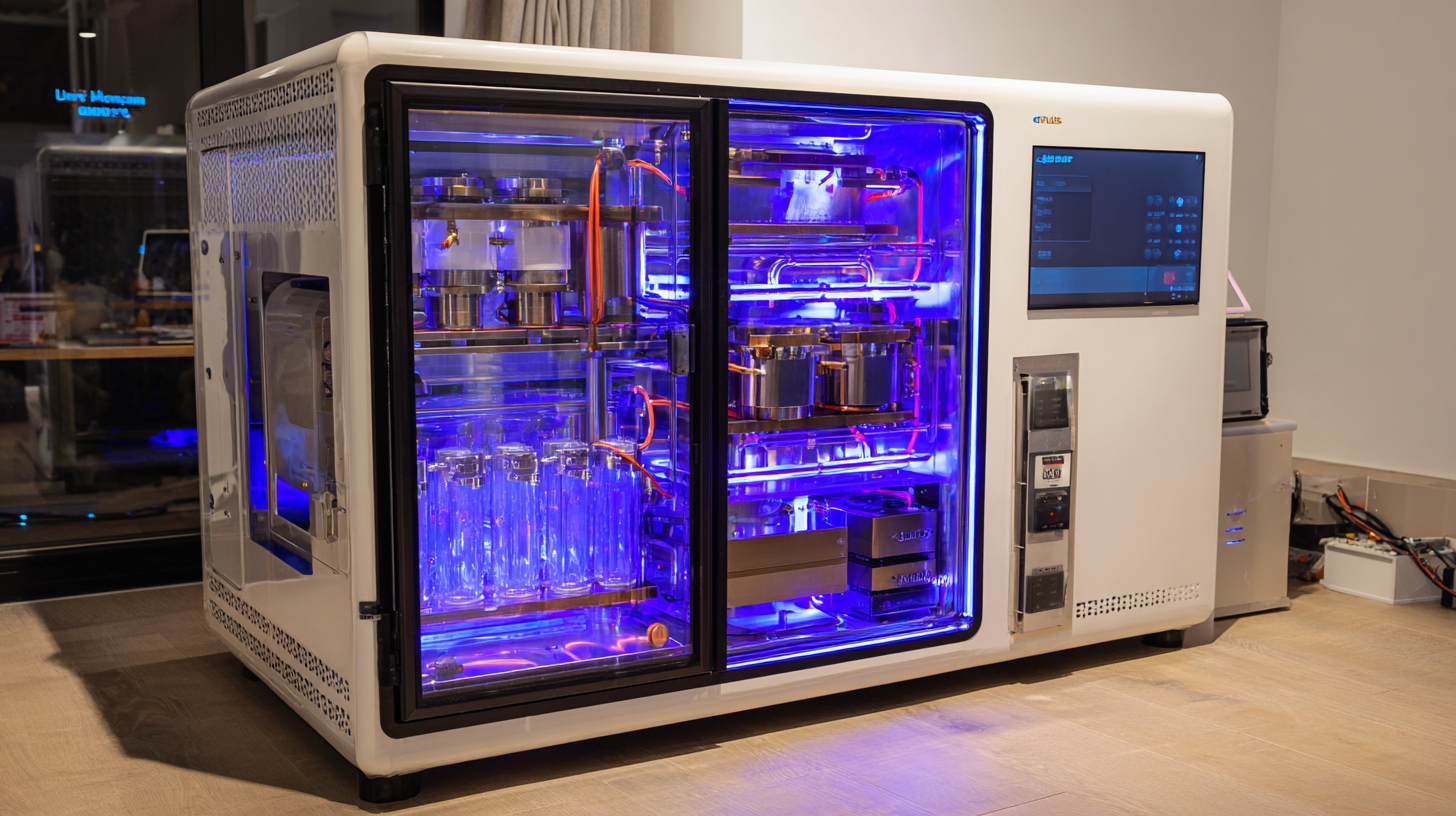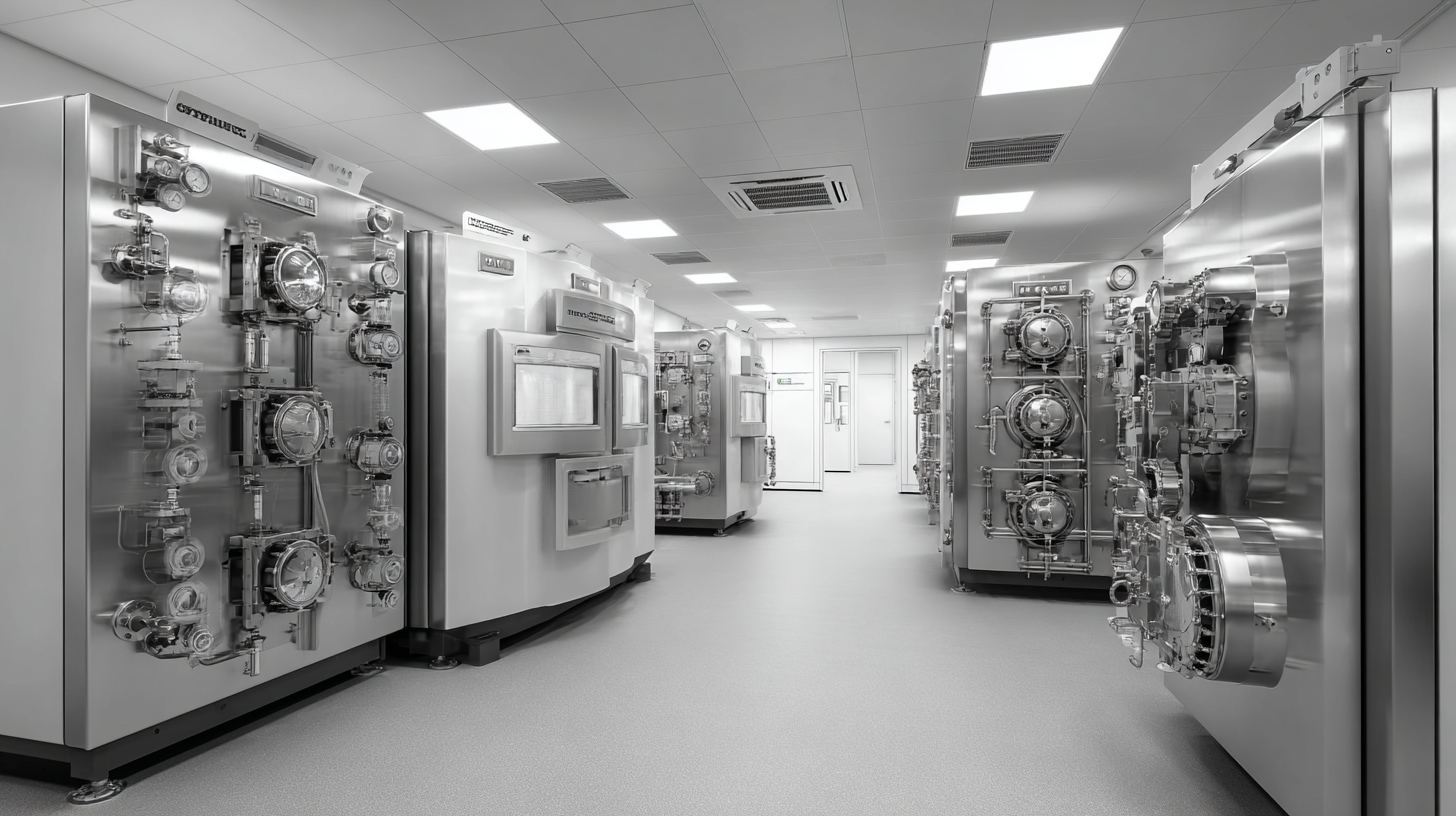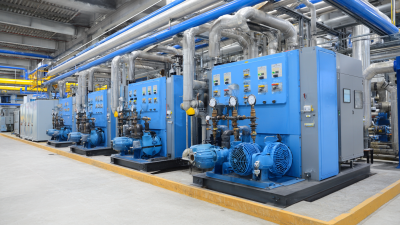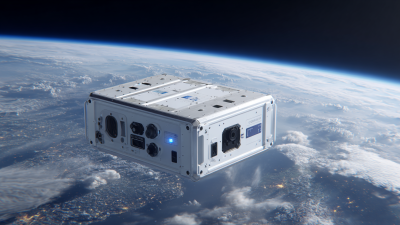
-
Home
-
About us
-
Products
-
Solutions
-
News
-
Blog
-
Contact us
Leave Your Message

In recent years, the demand for advanced cooling technologies has surged, particularly in sectors such as healthcare, electronics, and quantum computing. Helium Super Cryogenic Refrigerators have emerged as a pivotal solution, leveraging helium's exceptional thermal properties to produce ultra-low temperatures essential for various applications. According to a report from the International Cryogenics Society, the market for cryogenic refrigeration systems is projected to reach over $7 billion by 2025, with superconducting technologies driving much of this growth. The ability of Helium Super Cryogenic Refrigerators to achieve temperatures below 1 Kelvin opens new avenues for research and development in next-generation technologies, including high-performance computing and quantum information processing. As industries continue to explore the potential of these revolutionary systems, understanding their operation and optimization is critical to unlocking their full capabilities and addressing the challenges posed by energy efficiency and material sustainability.

In the realm of advanced technologies, helium super cryogenic refrigerators are becoming increasingly essential. These refrigerators operate at incredibly low temperatures, often reaching levels colder than outer space, making them ideal for applications such as quantum computing. Specifically designed to maintain the delicate state of quantum bits, these cooling systems are crucial for the development and stability of larger quantum computers. Recent projects illustrate their significance, with initiatives like a newly developed massive super-fridge aimed at supporting groundbreaking quantum research.
Furthermore, notable installations, such as a powerful German-built refrigerator arriving in Australia, will facilitate ambitious projects aimed at producing the world's first full-scale quantum computer. The capabilities of helium super cryogenic refrigerators allow for precision cooling that not only enhances the performance of quantum systems but also opens new avenues for technological advancements. As researchers continue to refine these sophisticated cooling mechanisms, their potential applications in various scientific fields are set to expand, promising a transformative impact on future technologies.
| Parameter | Value | Unit |
|---|---|---|
| Cooling Capacity | 30 | W |
| Operating Temperature Range | 1.5 | K – 300 K |
| Refrigerant Type | Helium | - |
| Energy Efficiency Ratio (EER) | 2.5 | W/W |
| Weight | 50 | kg |
| Dimensions (L x W x H) | 100 x 60 x 70 | cm |
| Applications | Cryogenic experiments | - |
| Typical Cost | 20,000 | USD |
Helium super cryogenic refrigerators represent a groundbreaking advancement in cooling technologies,
crucial for various high-tech applications. At the heart of these systems are several key components, including the helium compressor,
heat exchangers, and the superfluid helium loop.
The helium compressor plays a vital role in maintaining the desired pressures and temperatures required for efficient cooling.
It compresses the helium gas before it enters the heat exchangers, enabling effective heat transfer that is essential for lowering temperatures to cryogenic levels.
Another critical mechanism in helium cryogenic systems is the heat exchanger, specifically designed to optimize thermal conductivity.
These components facilitate the efficient transfer of heat from the system being cooled to the helium. The presence of
superfluid helium, characterized by its extraordinary thermal and mechanical properties,
further enhances the cooling process. By enabling a stable, low-temperature environment, helium cryogenic systems are instrumental in facilitating advancements in fields such as
quantum computing, medical imaging, and particle physics, where precise temperature control is paramount.
Helium super cryogenic refrigerators are becoming increasingly pivotal in various emerging technologies, particularly in fields such as quantum computing, telecommunications, and medical imaging. These refrigerators can achieve temperatures close to absolute zero, which is essential for the operation of superconducting materials that are vital in quantum systems. According to a report by MarketsandMarkets, the cryogenic equipment market is projected to grow from $20 billion in 2020 to over $30 billion by 2025, highlighting the pivotal role of advanced refrigeration technologies.

One significant advantage of helium super cryogenic refrigerators is their efficiency in energy consumption and performance stability compared to traditional cooling methods. For instance, research published in the Journal of Applied Physics reveals that helium-based cooling systems can maintain operational temperatures efficiently, leading to an increase in performance and longevity of critical components. As a result, industries leveraging these technologies can experience a reduction in operational costs, bolstering their competitiveness in an increasingly technology-driven market. With ongoing advancements, the full potential of helium super cryogenic refrigerators is likely to unlock new possibilities in innovation and development across multiple sectors.
Helium super cryogenic refrigerators have emerged as pivotal devices in the landscape of advanced research, particularly due to their unmatched cooling capabilities and efficiency. As research in fields such as quantum computing, particle physics, and condensed matter physics progresses, the demand for low-temperature environments has intensified. Helium, with its unique properties, allows scientists to achieve temperatures close to absolute zero, enabling groundbreaking experiments that were previously unattainable. This extreme cooling is essential for the operation of superconducting materials and qubits, which are the building blocks of future technologies.

The innovative applications of helium cooling extend beyond traditional research laboratories. Industries focusing on medical imaging, such as MRI technology, and those involved in the development of high-energy particle colliders utilize helium refrigeration systems to ensure optimal performance. Furthermore, advancements in cryogenic techniques are ripe for exploration in space technology, where maintaining the integrity of sensitive instruments under extreme conditions is critical. As researchers continue to unlock the potential of helium super cryogenic refrigerators, we can anticipate an expansion of their applications, driving significant advancements in various scientific and technological domains.
The future of cryogenic refrigeration technology is poised for significant advancements, particularly with the integration of helium super cryogenic refrigerators. These innovative systems leverage the unique properties of helium at ultra-low temperatures, enabling more efficient cooling processes that are crucial for various high-tech applications, such as quantum computing and advanced medical imaging. The increased efficiency leads to lower operational costs and a reduced environmental footprint, making these technologies not only more accessible but also more sustainable.
Emerging trends indicate a notable shift towards miniaturization and enhanced performance in cryogenic systems. Researchers are exploring advanced materials and designs that enable smaller, more powerful refrigerators. Additionally, the development of improved control systems and smart technologies allows for better monitoring and optimization of cooling processes. As industries increasingly demand reliable and effective refrigeration solutions for both research and practical applications, helium super cryogenic refrigerators are set to play a pivotal role in shaping future innovations across multiple sectors.





